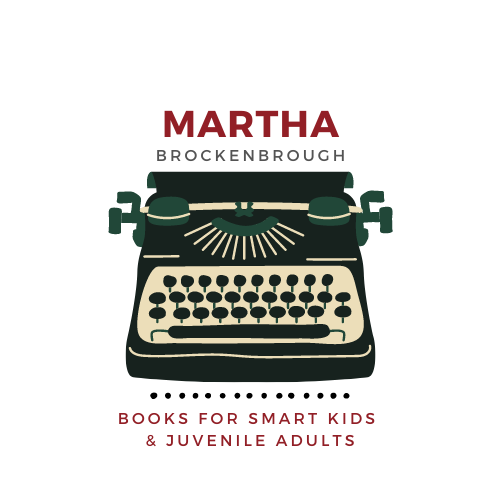Sarah Davies, who founded The Greenhouse Literary Agency, is one of the very best in the business. She's my agent, so of course I'm biased. But you'll want her to be your agent once you hear her speak at the New York SCBWI Conference—she's dynamic, direct, savvy, and deeply professional.
She'll be talking about middle grade fiction, and what makes books "salable." I asked her about this, about great middle grade reads, and about when a writer can know his or her book is ready to submit. Here's what she had to say:
At what point in the writing process should we be worried about what is “salable”?
There are many reasons to write, but if you aspire to land a deal with a publisher then you need to consider salability from the outset. But beware! I don’t mean by this that you should be focusing narrowly on a preconceived notion of genre or topic — or trying to replicate what you see in the marketplace. Rather, focus on developing the two big ‘C’ words — Concept and Craft. An agent or publisher will be looking for a great idea (Concept) to underpin your story — preferably something they’ve not seen before or at least spun in a way that feels really fresh. Structure and perspective may both play a part in this. Once you start getting your big idea on to the page, in story form, you will need a full toolkit of Craft with which to give your story maximum impact. All kinds of elements will play into this — voice, world building, characterization, show-not-tell, sense of place . . . and much more. So don’t get bogged down in what you perceive other writers are doing — develop your own ideas, style and writing abilities so that the story you have to tell feels authentic and compelling. Then agents and editors will definitely sit up and take notice!
What books should every aspiring middle grade writer read to be familiar with the best books on the shelves?
That’s a really tough question as everyone will have a different list – and I’m bound to leave out something significant! So here’s a mix of books I would have loved to represent (I’m deliberately leaving out books by my own clients, so you know this isn’t PR!):
“Develop your own ideas, style and writing abilities so that the story you have to tell feels authentic and compelling. Then agents and editors will definitely sit up and take notice!”
Classics:
HIS DARK MATERIALS - Philip Pullman
WALK TWO MOONS - Sharon Creech
Great contemporary standalones:
BROWN GIRL DREAMING – Jacqueline Woodson;
THREE TIMES LUCKY – Sheila Turnage
THE TRUTH ABOUT JELLYFISH – Ali Benjamin
LIESL & PO – Lauren Oliver
Humor (of very different kinds):
BETTER NATE THAN EVER – Tim Federle
GEEKS, GIRLS AND SECRET IDENTITIES – Mike Jung
Series:
CLEMENTINE – Sara Pennypacker(perfect voice/storylines)
A SERIES OF UNFORTUNATE EVENTS – Lemony Snicket (the collectible power of a fantastic concept!)
How do people know their work is ready to query? Is there a checklist of steps you’d recommend?
Ideally, you should be writing in a growing context of awareness of the children’s books business. By which I mean — reading widely, dipping into craft books or articles and experimenting with your voice and style (what one of my clients calls “playing”), networking with other writers so you see different forms of authorial process, listening to what agents and editors say, online or at conferences, and — very importantly — gathering around you a trusted set of critique partners. Preferably at least one of these CPs will already be published and have gone through the trial by fire of intensive revision, submission, acquisition and all that lies beyond, so they can give your work some tough love (as well as encouragement!).
“Don’t be frightened to be radical — rewriting can be far more powerful than tweaking, as it allows you to pull in fresh thinking in the strongest possible way so the new draft feels fully coherent.”
Test drive your writing and story in as many settings as you can manage. Perhaps with a one-to-one at a conference (or several conferences). Please note: your family or school class aren’t going to be able to give you the objective critiquing you need, so get yourself into as professional an environment as you can achieve.
Weigh the critiques you’re given, and be honest with yourself. If in your heart of hearts you know the advice you’re given has merit, then dive back in. Don’t be frightened to be radical — rewriting can be far more powerful than tweaking, as it allows you to pull in fresh thinking in the strongest possible way so the new draft feels fully coherent.
Rinse and repeat all the steps above till you have a manuscript which feels as good as you can make it. Then put it away for a couple of weeks, so you reread it completely fresh as if you’ve never seen it before. More work to be done? Then now is the time to do it!
As you’ve been writing, you should have been formulating your pitch. In fact, you can formulate your pitch BEFORE you start writing! This will help you identify the arc, the high stakes, where your characters are headed – even before you write a word. This is all about finding your focus. Bring all this together into your query letter, which should also include an “elevator pitch” (a line or two summing up the story), target market, word count – and any useful info about yourself.
Voila! You are ready to query.
Follow Sarah on Twitter
Follow The Greenhouse on Facebook
About The Greenhouse Literary Agency

